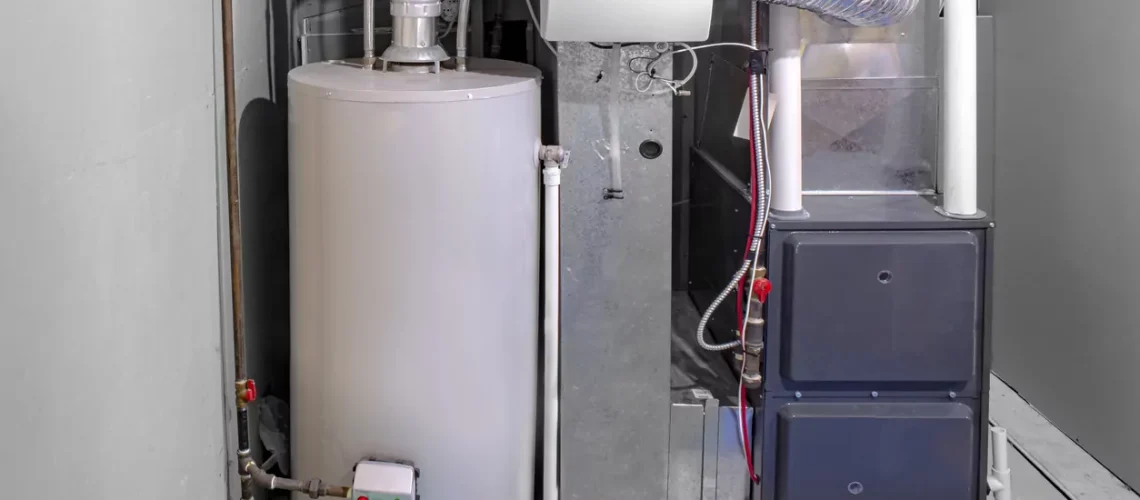A well-functioning heating system is a cornerstone of a comfortable and safe home, especially in colder climates. However, when heating systems develop faults or go unmaintained, they can pose serious safety risks. Home inspectors, armed with expertise and a discerning eye, play a crucial role in uncovering safety issues associated with faulty heating systems. In this comprehensive guide, we will explore the most common safety concerns that home inspectors frequently discover, emphasizing the critical importance of addressing these issues for a warm and secure home environment.
1. Carbon Monoxide Leaks
Issue: Carbon Monoxide Emissions from Heating Systems
One of the most dangerous safety issues associated with faulty heating systems is the potential for carbon monoxide leaks. Carbon monoxide is a colorless, odorless gas that, when undetected, can lead to serious health issues or even fatalities.
Why It Matters:
Carbon monoxide is a silent killer, causing symptoms such as headaches, dizziness, nausea, and, in severe cases, unconsciousness or death. Home inspectors prioritize checking for proper ventilation, inspecting flue pipes, and ensuring combustion systems are functioning correctly to prevent carbon monoxide leaks.
2. Gas Leaks
Issue: Leaks from Gas-Fueled Heating Systems
Heating systems powered by natural gas or propane can develop leaks, creating a hazardous situation due to the flammability of these gases. Gas leaks are a serious safety concern discovered by home inspectors.
Why It Matters:
Gas leaks pose an immediate risk of fire or explosion. Home inspectors carefully examine gas connections, valves, and pipes, recommending immediate repairs or replacements to mitigate the danger of gas leaks.
3. Faulty Pilot Lights or Ignition Systems
Issue: Malfunctioning Pilot Lights or Ignition Systems
Problems with the pilot light or ignition system can result in the heating system not igniting properly or shutting off unexpectedly. This issue is frequently identified by home inspectors during their examinations.
Why It Matters:
Malfunctioning pilot lights or ignition systems can lead to a lack of heat, especially in critical times. Additionally, continuous attempts to reignite may result in gas buildup, increasing the risk of gas leaks. Home inspectors recommend prompt repairs to ensure reliable and safe heating.
4. Cracked Heat Exchangers
Issue: Cracks in Furnace Heat Exchangers
Furnaces with cracked heat exchangers are common safety concerns discovered by home inspectors. A cracked heat exchanger can allow combustion byproducts, including carbon monoxide, to escape into the home.
Why It Matters:
Cracked heat exchangers compromise indoor air quality and pose a serious risk of carbon monoxide exposure. Home inspectors emphasize the need for immediate repairs or replacements to ensure the safe operation of the heating system.
5. Inadequate Ventilation
Issue: Poor Ventilation of Heating Systems
Inadequate ventilation can lead to a buildup of combustion byproducts, including carbon monoxide, within the home. Home inspectors often identify heating systems with ventilation issues during their examinations.
Why It Matters:
Insufficient ventilation increases the risk of indoor air pollution and can lead to respiratory issues or other health problems. Home inspectors stress the importance of proper ventilation to ensure the safe operation of heating systems.
6. Electrical Issues
Issue: Electrical Problems in Heating Systems
Electrical components within heating systems can develop issues such as faulty wiring, short circuits, or overheating. These electrical problems are safety concerns often uncovered by home inspectors.
Why It Matters:
Electrical issues in heating systems can result in fires, electric shocks, or system failures. Home inspectors pay close attention to the condition of electrical components, recommending repairs or replacements to eliminate safety risks.
7. Blocked or Dirty Air Filters
Issue: Neglected Air Filters in Heating Systems
Heating systems with blocked or dirty air filters are common safety issues identified by home inspectors. Neglected filters can impede airflow, reduce efficiency, and even lead to overheating.
Why It Matters:
Blocked air filters can cause the heating system to work harder, increasing the risk of malfunctions and potential overheating. Home inspectors stress the importance of regular filter replacement to maintain the efficiency and safety of heating systems.
8. Overheating Systems
Issue: Heating Systems Operating at Excessive Temperatures
Overheating can occur in heating systems due to various factors, including blocked air filters, malfunctioning components, or issues with the thermostat. Home inspectors frequently identify signs of overheating during their examinations.
Why It Matters:
Overheating can lead to system breakdowns, fire hazards, or damage to internal components. Home inspectors recommend prompt identification and resolution of the underlying causes to prevent safety risks associated with overheating.
9. Neglected Maintenance
Issue: Lack of Routine Maintenance for Heating Systems
Neglecting routine maintenance is a common safety concern discovered by home inspectors. Heating systems that have not undergone regular inspections and upkeep are prone to malfunctions and safety hazards.
Why It Matters:
Lack of maintenance can result in system failures, reduced efficiency, and increased safety risks. Home inspectors stress the importance of regular professional maintenance to ensure the safe and reliable operation of heating systems.
10. Inefficient or Malfunctioning Thermostats
Issue: Thermostats Not Regulating Temperature Effectively
Thermostats that are inefficient or malfunctioning can lead to inconsistent heating, discomfort, and potential safety hazards. Home inspectors frequently identify thermostat issues during their examinations.
Why It Matters:
Inefficient thermostats can result in temperature fluctuations, leading to discomfort and potentially forcing users to use alternative heating sources. Home inspectors recommend addressing thermostat issues promptly to ensure consistent and safe heating.
Conclusion
Faulty heating systems can jeopardize the safety, comfort, and well-being of a home’s occupants. Home inspectors, with their thorough examinations and expertise, play a critical role in identifying safety issues associated with heating systems. From the dangers of carbon monoxide and gas leaks to electrical problems and inadequate ventilation, addressing these common concerns is paramount for creating a warm and secure home environment. In the realm of homeownership, proactive measures, regular inspections, and timely repairs are key to mitigating the risks associated with faulty heating systems and ensuring a safe and comfortable living space for all.
To learn more about the most common safety issues discovered by home inspectors, check out our article “Safeguarding Homes: Common Safety Issues Uncovered by Home Inspectors“.


